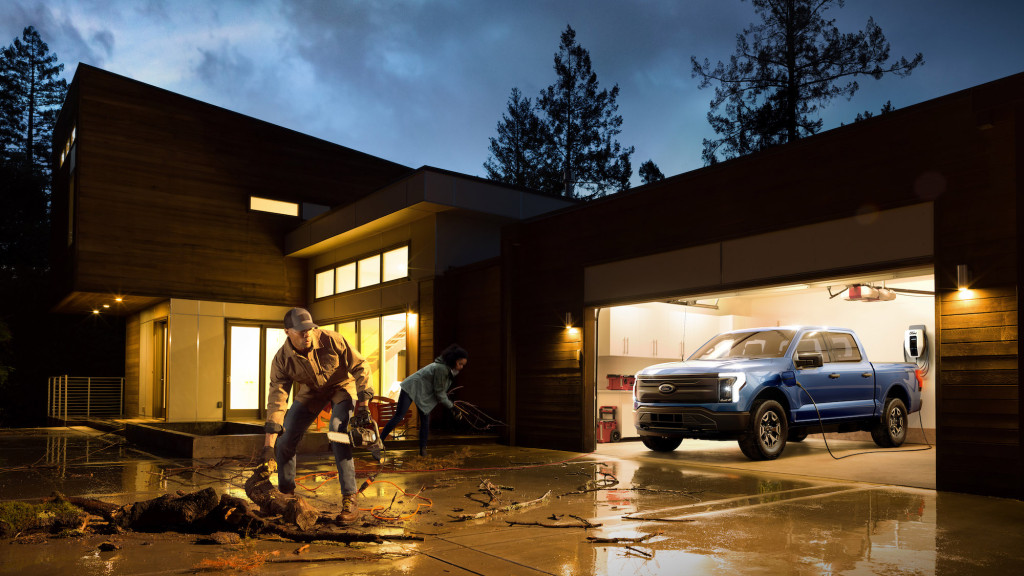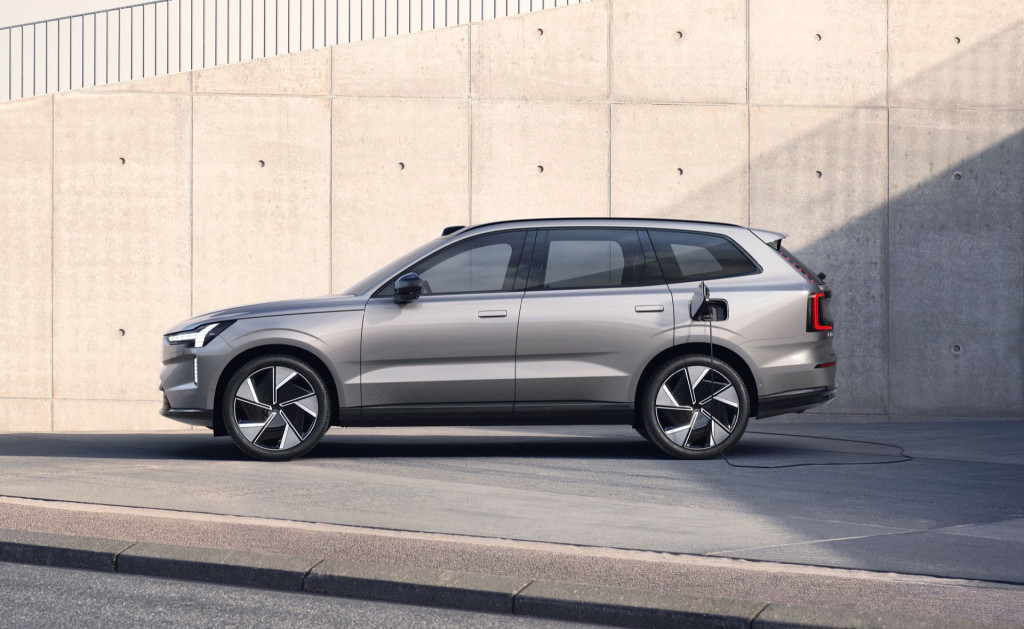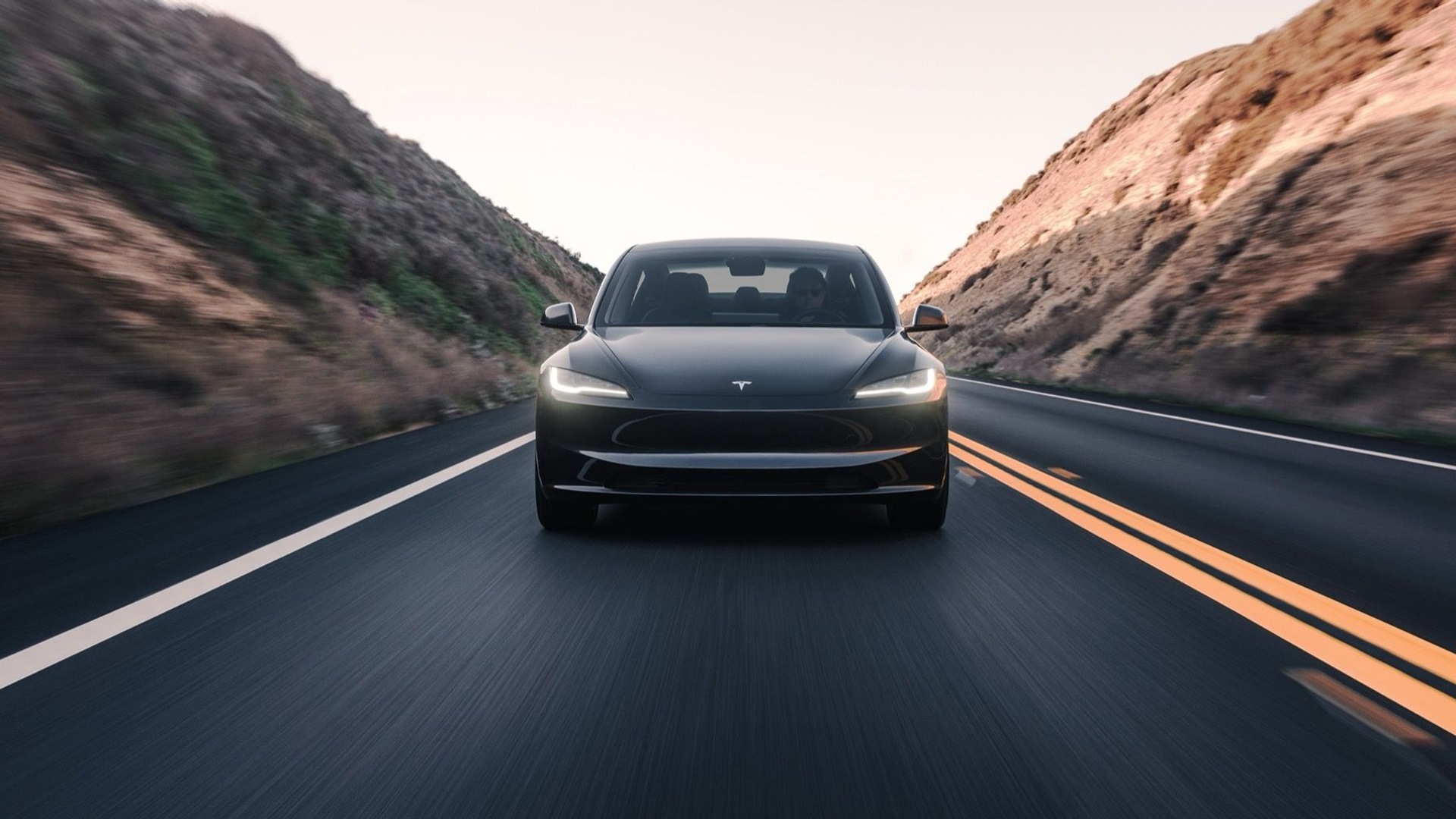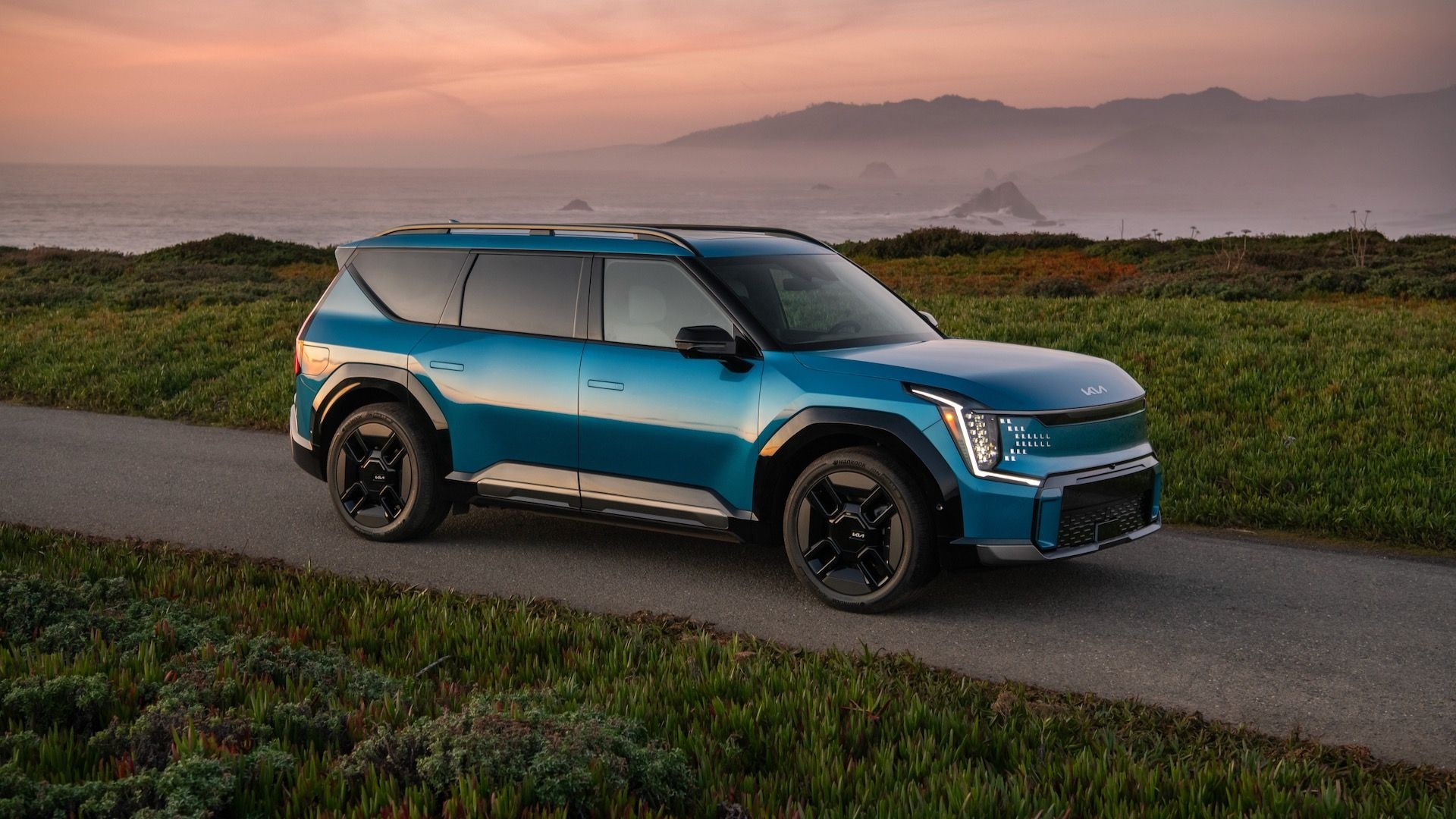The California legislature has introduced a bill that would mandate bidirectional charging capability for all new EVs sold in the state beginning in 2027.
First spotted by Charged EVs, SB 233 has passed the California Senate Energy Committee and now heads to the Senate Transportation Committee April 25 for further consideration. If enacted, the bill would ensure all new EVs sold in California after 2027 would have the ability to discharge power from their battery packs to assist the power grid, or provide a backup power source for homes.

2023 Ford F-150 Lightning
"SB 233 will make EVs more attractive to consumers by enabling them to use their car batteries to power their homes," State Senator Nancy Skinner (D-Berkeley), the bill's sponsor, said in a statement.
Bidirectional charging itself would also be incentivized by setting aside funding for higher levels of incentives than those already available for standard EVs and charging infrastructure. The bill proposes making this shift beginning in July 1, 2024. California just last year expanded its bidirectional charging pilot programs, offering additional advantages to disadvantaged communities and bringing some single-family homes into the fold.

2024 Volvo EX90
Those programs included a microgrid pilot that could see how well individually owned EVs could help counter brownouts—such as with the Ford F-150 Lightning and its Intelligent Backup Power system.
As of yet, only a subset of EVs offer bidirectional charging. In addition to the F-150 Lightning, and Hyundai/Kia/Genesis models based on the automaker's E-GMP platform, Lucid has said that this ability will be enabled soon, and it's already delivering home chargers compatible with it. Volvo has equipped its upcoming EX90 with bidirectional charging hardware for AC and DC uses, and Volkswagen has said its mainstream EVs will offer bidirectional charging capability in the near future.












